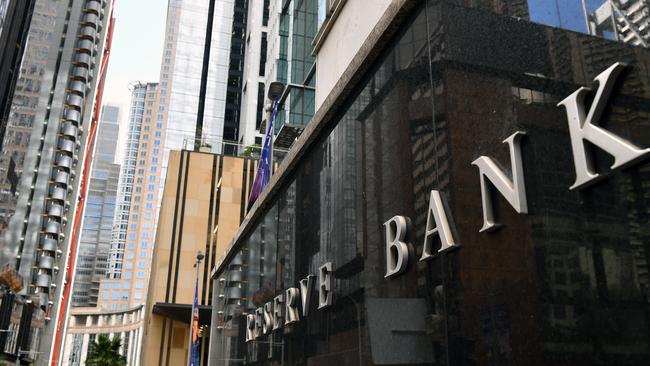Wages on back burner as firms focus on costs
An entrenched focus on cost containment by businesses could lead to only a slow pick up in wages, the Reserve Bank says.

An entrenched focus on cost containment by businesses could lead to only a slow pick up in wages, the Reserve Bank says, despite reports of labour shortages amid the fastest 10 months of employment growth on record.
Since May last year, the economy has added nearly 950,000 jobs, equal to a 7.7 per cent gain.
Minutes from the May meeting of the RBA board, released on Tuesday, reiterated the bank’s central case that the jobless rate would fall to 5 per cent by the end of this year, and to 4.5 per cent by the middle of 2023.
The central bank’s preferred measure of pay increases — the wage price index — was expected to lift by “a little under 2 per cent over 2021 and to around 2.25 per cent by mid-2023”.
In the RBA’s “baseline scenario”, underlying inflation was expected to increase from 1.5 per cent in this year and still be under 2 per cent — below the RBA’s 2-3 per cent target range — by mid-2023.
NAB’s April business survey, released earlier this month, showed Australian firms were approaching the limits of their productive capacity and would need to invest and hire to take advantage of a booming post-COVID recovery.
According to minutes from the RBA board meeting of May 4, at which the central bank held rates steady at 0.1 per cent, “members noted that the extent of spare capacity in the economy at the end of the forecast period was uncertain, which meant the gradual increase in inflation could be slower or faster than envisaged in the baseline scenario”.
The uncertain impact of closed borders on labour supply combined with a labour market recovery that has outstripped expectations have led some economists to predict wages pressure will emerge earlier than anticipated.
But amid an increasingly heated political debate around whether the Morrison government is doing enough to lift workers’ pay after a budget that included an extra $96bn in stimulus, the RBA board minutes said “spare capacity in the economy and a strong focus on cost containment by businesses were both expected to contribute to continued subdued wage and price pressures.”
Moreover, “wage and price inflation were at much lower levels than over the preceding decade, and because of inertia in wage- and price-setting practices, it was possible that price pressures could be slow to build, even if spare capacity were absorbed more quickly than expected.”
The RBA board members, however, also considered another scenario. “Alternatively, higher commodity prices, persistent supply chain bottlenecks and firms’ reduced ability to address labour shortages through access to workers from abroad could mean that wages growth and inflation picked up earlier and more rapidly than expected as the economy continued to expand,” the minutes read.
Nonetheless, with the base case forecast that wage growth would be 2.25 per cent in two years’ time, the hurdle for rate hikes remained substantial.
Members noted that wages growth “would need to be materially higher than it is currently” — at above 3 per cent — for inflation to be sustainably within the 2-3 per cent target.
“This would require significant gains in employment and a return to a tight labour market,” the minutes read.
“The board viewed these conditions as unlikely until 2024 at the earliest.”
The wage price index for the March quarter will be released on Wednesday, and CBA economists predict growth of 0.5 per cent, which would see the annual rate remain at a historical low of 1.4 per cent.




To join the conversation, please log in. Don't have an account? Register
Join the conversation, you are commenting as Logout